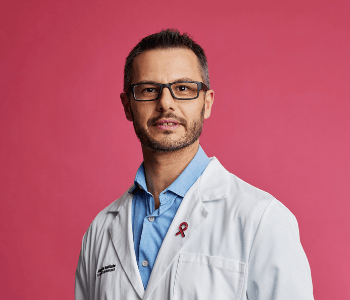
Accelerating Next Generation Personalised Medicine
Published: 05/9/21 8:22 AM

David Gallego-Ortega
Project Description: Personalised medicine will allow the selection of the best possible drug for a particular patient based on the specific characteristics of their tumour. However, this requires laboratory-based drug screening to determine which drug (or drugs) is most effective against a sample of the patient’s tumour. Currently the screening process is very time consuming and impractical in most instances to inform clinical decision making. Dr David Gallego-Ortega, at the Garvan Institute of Medical Research and the University of New South Wales, has developed a new medical device to speed up and improve this process.
Why This Work is Needed: While personalised drug screening for an individual patient often provides an excellent outcome, the process is currently too slow for widespread use. A new device developed by Dr Gallego-Ortega, the ALTEN, has the potential to rapidly speed up the process and enable implementation into practice.
Expected Outcomes: Development and validation of the ALTEN device may lead to faster drug testing on patient samples, enabling more patients to benefit from personalised medicine.
Project Details
Breast tumours vary significantly both within a patient, and between patients. This means that one treatment type will not be effective for all, and different drugs and treatment approaches will benefit different patients.
Personalised medicine is the term for developing a management plan based on an individual’s specific disease. In the case of breast cancer, a sample of the patient’s tumour (biopsy) can be used to test a number of different drugs in the lab, allowing scientists to identify the best option for treating that tumour. Unfortunately, this process is currently very slow, with results often taking 3 to 12 months to be returned – a timeframe that exceeds the patient’s therapeutic opportunity window and thus is unsuitable to inform real-time clinical decisions.
Dr Gallego-Ortega and his team have developed the ALTEN (Alginate-based Tissue Encapsulation) medical device. The ALTEN enables more sensitive and rapid functional testing of anticancer drugs on tumour samples. ALTEN allows growth of the tumour samples with the original tissue architecture and cell ecosystem. As such, it is a closer replication of the tumour in the body as well as delivering results in as little as 2 weeks, which will allow the outcomes to be used to guide clinical decisions.
In this NBCF-funded study, the team will provide proof-of-concept data for the utility of ALTEN in a personalised medicine setting for breast cancer.